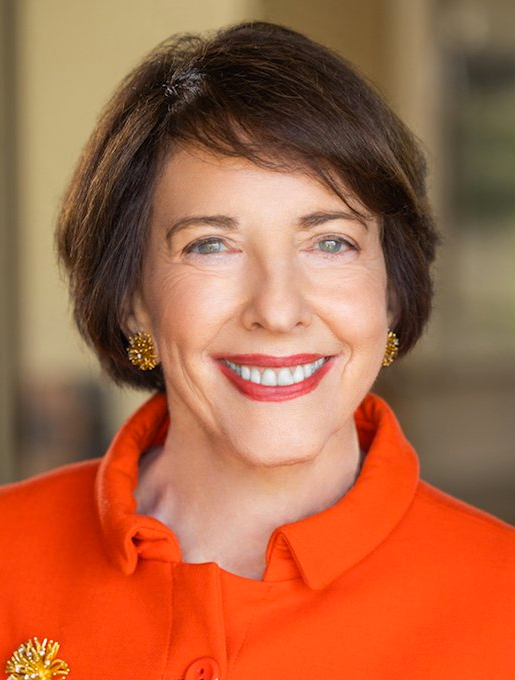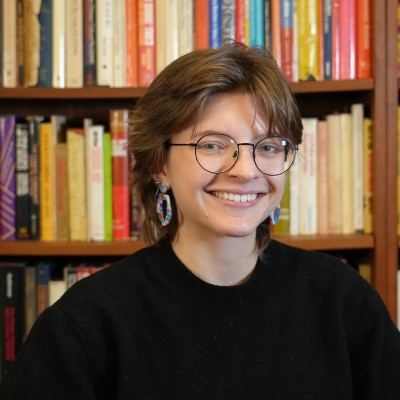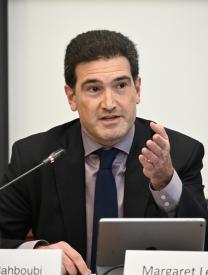On July 16, USCET hosted the latest installment of our China Connection series, “Bridging Generations of U.S.-China Education Exchange: American Scholars to China.” The event featured Peter Hessler, staff writer at The New Yorker; Susan Shirk, director emeritus at UC San Diego; and Savannah Billman, senior digital communications associate at the National Committee on U.S.-China Relations, in dialogue with Neysun Mahboubi, director of the Penn Project on the Future of U.S.-China Relations at the University of Pennsylvania.
The panelists reflected on their motivations for going abroad, the global and political contexts of the time, and how their experiences in China shaped their personal and professional trajectories.
USCET’s Executive Director, Rosie Levine, opened the event by framing the conversation around the current state of U.S.-China educational ties. With only about a thousand American students studying in China, the number reached a record low in 2023. Meanwhile, Chinese students have also faced challenges in the United States, as visa restrictions and other policies have limited opportunities for students on both sides.
Neysun Mahboubi opened the conversation by reflecting on his recent visit to China, where he met many American students currently studying there. He and the students acknowledged that the number of Americans studying in China today is only a fraction of what it was just a few years ago. With a growing perception that American students are losing interest in studying in China, Neysun invited the speakers to share their own experiences and motivations for choosing to study there.
“It was really the time where if you left China for a couple of months and came back, you wouldn’t recognize anything that you saw.”
Susan Shirk was the first to share her story. As one of the first American students to visit China in the 1970s, she joined a cohort of graduate students welcomed after the Chinese Ping Pong team’s landmark visit to the United States in 1971, which marked the beginning of China’s reopening after years of academic isolation. The trip gave her first-hand exposure to the country she had long studied from afar. Over the course of more than a month, she traveled widely, from Yan’an to Beijing, where she even met Premier Zhou Enlai, prior to Henry Kissinger’s historic visit. This formative experience led her to return for field research and laid the foundation for her lifelong study of Chinese domestic politics and its global implications.
Peter Hessler followed by sharing how his first visit to China, via the Trans-Siberian Railway in 1995, led him to join the Peace Corps, where he taught English at a college in Sichuan. For him, the language, community, and education deeply shaped his career, broadening his perspective beyond U.S.-China relations to include China’s domestic development in education, urbanization, and welfare. Although Hessler’s time in China coincided with a turbulent period in U.S.-China relations, marked by the aftermath of Tiananmen Square and the 1996 Taiwan Strait Crisis, educational exchange between Americans and Chinese continued. He emphasized that the opportunity to study and live in China gave him valuable first-hand knowledge of what people were concerned with in the rural areas.
Savannah Billman brought a Gen-Z perspective to studying in China. In 2013, she received a U.S. government scholarship to study Chinese in Beijing, where she immersed herself in an intensive language curriculum. That experience motivated her to pursue undergraduate studies at NYU Shanghai, allowing her to continue gaining first-hand exposure to a rapidly evolving China. Her time there, however, came to an abrupt close during the pandemic. In 2020, China suspended all visas for international students, forcing Savannah and many others to return home. She reflected on the years she had lost but remained positive about her time in China, describing it as a valuable experience that gave her unique insight into the country’s fast-changing policies, from digitalization to visa regulations.
All the panelists encountered China at different stages of its own development and engagement with the world, from Susan’s experience in China in the 1970s, when China was beginning to reach out to the international community despite some pushback. In the 1990s, Peter’s experience in China was initially foreshadowed by the low point of the U.S.-China relationship, marked by Tiananmen Square and the 1996 Taiwan Strait Crisis. For Savannah, her time in China saw the rapid changes in the country’s development and the deteriorating U.S.-China relations that were accelerated during the COVID-19 pandemic, which also ended her time in China. Susan, Peter, and Savannah, nevertheless, all agreed that their experiences in China were transformative, as they provided direct exposure to local communities and development, which helped shape their career paths by offering perspectives that people cannot gain elsewhere.
“Each of us has encountered China at various stages of its own… national growth and its own thoughts about its own engagement with the world.”
Going through their stories on the shifting political contexts and their experience in China reflects on the modern day. While many American students nowadays are still curious about China, many are also concerned about approaching, partly because of the worry that the political closure in China will limit their access to information; yet, with the constrained restrictions on national security, many are worried that alerting the security clearance regarding involvement with the Chinese government can jeopardize their career, especially for those who are hoping to work in the government.
Despite strained U.S.-China relations today, the panel concluded on an encouraging note. The panelists remain optimistic about encouraging American students to study in China if institutions are supportive. They emphasized that there are still many possibilities for change in China’s political environment and society in the future. Above all, the panelists stressed the importance of spending time in China to understand the nation, especially for those looking to engage deeply with it.
Speaker Biography

Peter Hessler is a staff writer at The New Yorker, where he served as the Beijing correspondent from 2000 to 2007, and is also a contributing writer for National Geographic.
Originally from Columbia, Missouri, he has spent most of his writing life overseas. In 1996, he joined the Peace Corps, which sent him to Fuling, a small city in southwestern China. For two years, he taught English and American literature at Fuling Teachers College, an experience that eventually became the subject of his first book, River Town, which was published in 2001. This book was followed by two others about China: Oracle Bones (2006), and Country Driving (2010). Together they comprise Hessler’s “China trilogy,” covering the decade in which he lived in the country, from 1996 until 2007. Hessler won the 2008 National Magazine Award for excellence in reporting, and he was named a MacArthur Fellow in 2011. He lives in Colorado.

Susan Shirk is one of the most influential experts working on U.S.-China relations and Chinese politics in the U.S. She is a research professor and the founding chair of the 21st Century China Center, a unique academic research center and university-based policy center at the School of Global Policy and Strategy.
Shirk held the Ho Miu Lam Chair in China and Pacific Relations for many years and is director emeritus of the University of California’s Institute on Global Conflict and Cooperation (IGCC). She is the author of many books, including most notably The Political Logic of Economic Reform in China, China: Fragile Superpower, and Overreach: How China Derailed its Peaceful Rise. Her latest book, “Overreach,” received the Lionel Gelber Prize as the best non-fiction book published in English language on international affairs and the Silver Medal of the Arthur Ross Book Award by the Council on Foreign Relations.
Besides her academic work, Shirk is also known for her extensive policy experience, especially in U.S.-China relations. From 1997-2000, Shirk served as Deputy Assistant Secretary of State in the Bureau of East Asia and Pacific Affairs, with responsibility for China, Taiwan, Hong Kong and Mongolia. She is the founder of, and remains active in, the Northeast Asia Cooperation Dialogue (NEACD), a Track II forum for discussions of security issues among defense and foreign ministry officials and academics from the United States, Japan, China, Russia and the Koreas.
Shirk co-chairs a task force of China experts that issued its third report “China’s New Direction: Challenges and Opportunities for U.S. Policy” in Sept. 2021. She is also co-chair of the UC San Diego Forum on U.S.-China Relations, an ongoing high-level forum focused entirely on the U.S.-China relationship.

Savannah Billman is the Senior Digital Communications Associate of the National Committee on US-China Relations since 2023.
Before joining the National Committee, she worked in communications, content creation, and marketing as a Fellow at Digital Asia Hub, an Asia-based think tank covering internet and society in Asia, and as Content Manager for China Admissions, a Beijing-based ed-tech startup marketing top Chinese universities to international students.
Savannah graduated in 2021 with a MA in China Studies from the Yenching Academy of Peking University, where she researched the evolution of policy in Gansu province during the Republican period, and served as Director of Public Relations for the Yenching Global Symposium. She graduated from NYU Shanghai in 2019 with a BA in Global China Studies and Chinese language, where she researched the mythology of the Silk Road dating back to the Han dynasty. During her six years living between Shanghai and Beijing, she was an active organizer of multiple student-let initiatives promoting better understanding of China.
Inspired by her experience living in and studying China, Savannah has written for multiple news organizations such as The Jamestown Foundation’s China Brief, The World of Chinese, TechNode, SupChina, and Sixth Tone. When she’s not writing copy about China, Savannah enjoys running and art museums.
Moderator

Neysun A. Mahboubi is Director of the Penn Project on the Future of U.S.-China Relations at the University of Pennsylvania, where he teaches various courses related to Chinese history, law, and policy, and hosts the China Studies podcast. He is also a Non-Resident Senior Fellow with the Asia Program at the Foreign Policy Research Institute. Previously he was a Research Scholar of Penn’s Center for the Study of Contemporary China, where he remains affiliated.
His primary academic interests are in the areas of administrative law, comparative law, and Chinese law, and his current writing focuses on the development of modern Chinese administrative law. He frequently comments on Chinese law and policy developments and U.S.-China relations for various media outlets. He has taught also at Princeton University’s School of Public & International Affairs, the University of Connecticut School of Law, and Yale Law School.
China Connections
Why should Americans be interested in China? USCET launches China Connections, a new monthly series hosting discussions with experts to explore their work, gain insights into current events, and learn what a career in the China field looks like today. These events highlight individuals with unique expertise on China to provide students, young professionals, and members of the public a deeper understanding of current events and increase American student interest in pursuing a focus on China. These events are mostly held in person at George Washington University with online engagement.
